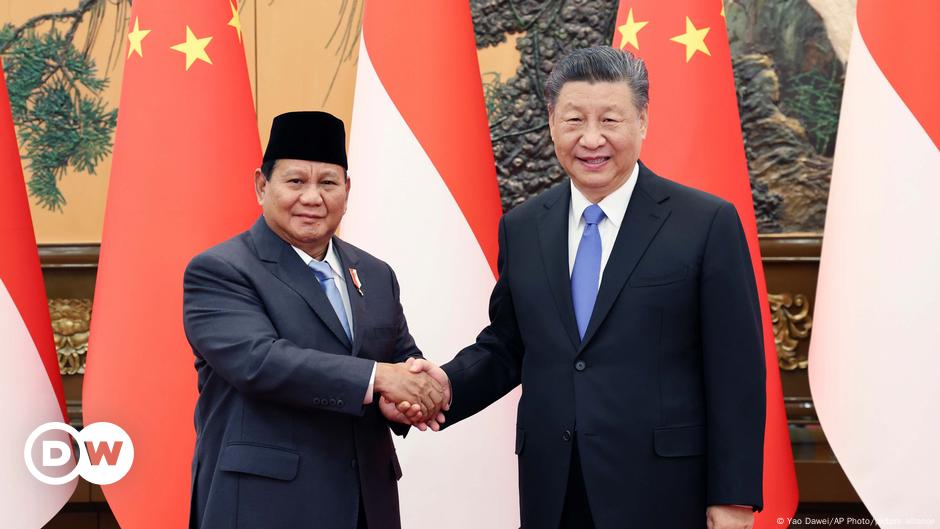Indonesia formally became a member of BRICS on Monday, bringing Southeast Asia’s largest economy and the region’s most populous country into the group.
Officially established in 2009 by Brazil, Russia, China and India, BRICS has become relevant as an international forum for developing countries. South Africa joined soon after the first summit, and Egypt, Iran, Ethiopia and the United Arab Emirates became members in 2024, with Indonesia activating its membership in January 2025.
Bolstered by its new members, BRICS is now trying to strengthen its reputation as an alternative to the G7 group of major economies led by the United States.
“We have reiterated several times that BRICS is an important platform for Indonesia to strengthen South-South cooperation and ensure that Global South countries have a voice in global decision-making processes,” Indonesian Foreign Ministry spokesperson Roliansyah Soemirat said. And aspirations are well represented.” DW.
According to the spokesperson, Jakarta is “committed to contributing to the agenda discussed by BRICS, including efforts to promote economic resilience, technical cooperation and public health.”
Subianto stepped in
Indonesia’s previous President Joko Widodo declined to accept his country’s inclusion in BRICS in 2023, saying Jakarta was still weighing the advantages and disadvantages and did not want to “rush into it”. The new President Prabowo Subianto, who emerged victorious in the 2024 general elections, has no such worries.
But the change in Jakarta signals more than a simple change of government. With the Western-led global order seen as politically weakened by economic turmoil and the wars in Ukraine and the Middle East, countries in the Global South are increasingly moving closer to Beijing and Moscow and risk angering Washington. Are willing to. More than 30 countries, including Southeast Asian countries such as Thailand, Malaysia and Vietnam, have now expressed interest or formally applied for BRICS membership.
A ‘multipolar’ world
The development of BRICS as a major geopolitical grouping has also been driven by the rise of China as a global economic and political power. The Chinese government often calls for a “multipolar” world order, a security and financial infrastructure that is not exclusively dominated by the US. BRICS members also frequently discuss the global dominance of the US dollar and the need for alternative financial structures between countries.
Diplomatically, BRICS is important to both China and Russia as a symbol of this emerging multipolar landscape, with the 2024 forum hosted by Vladimir Putin showing that Moscow still has plenty of friends around the world despite Western sanctions .
Commenting on Indonesia’s decision to join BRICS, Chinese Foreign Ministry spokesperson Guo Jiakun praised the South Asian nation as a “major developing country and an important force in the global South.”
However, it is important to note that BRICS is not an explicitly anti-Western club. Indonesia, like BRICS founding member India, maintains good relations with Western countries, and is unlikely to take sides in a geopolitical confrontation between the US and its rivals.
Indonesia as a balancing power?
“Indonesia does not intend to separate from the West either gradually or immediately,” M. Habib Abian Djakwan, a researcher in the department of international relations at the Center for Strategic and International Studies (CSIS) Indonesia, told DW.
“In Indonesia’s foreign policy DNA, as the saying goes, all are friends [President Subianto] Prabowo too,” he said, noting that Jakarta “just wants to level its playing field.”
“If Indonesia can maintain its non-aligned status and influence the BRICS agenda with its inclusive approach without excluding or denying the West, I think [membership] According to the expert, “It will not have much impact on our relations with the West.”
Teuku Rezasyah, another international relations expert and lecturer at Padjadjaran University in West Java, told DW that Indonesia could act as a “balancer” within the BRICS, while also maintaining its ties with the US and the EU. Could.
“As a middle power, being a member of BRICS gives Indonesia an edge in the global order,” he said.
trump effect
As US President-elect Donald Trump takes office later this month, it is widely expected that the US will withdraw from multilateral engagement.
Taking aim at BRICS, Trump in November threatened the bloc’s members with cutting them off from the US economy if a “BRICS currency” was created. But this confrontational approach could backfire and alienate Jakarta, which has active security cooperation with the US.
S. Alexander Raymond Arifiento, a senior fellow at the Rajaratnam School of International Studies (RSIS), believes this will provide Indonesia an opportunity to build stronger regional partnerships in the context of BRICS and the Association of Southeast Asian Nations (ASEAN).
“Forging mutually beneficial partnerships with other Southeast Asian countries will not only strengthen the region’s non-aligned position in an increasingly uncertain geopolitical order, but also strengthen Indonesia’s position as an ASEAN leader as well as its multilateral Credibility will also be strengthened as the United States moves toward unilateralism,” Arifiento wrote.
Edited by: Darko Janjevic






Leave a Reply